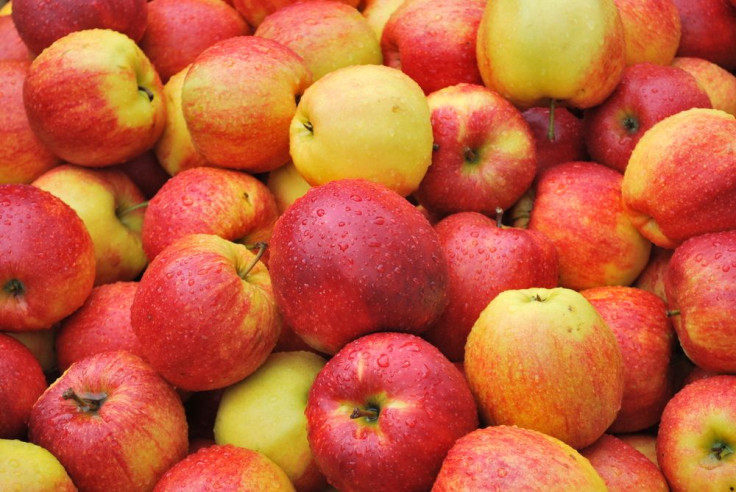Arctic Apples, Newest Genetically Modified Food, To Get FDA Approval As World’s 1st Brown-Resistant Fruit

The U.S. Department of Agriculture last week approved the sale of genetically modified apples that don’t turn brown when exposed to air. The apples, Artic Granny Smith and Artic Golden Delicious, are reportedly identical to conventional apples, aside from the fact that the gene which controls the browning process has been turned off. Artic apples will soon be planted on U.S. soil and consumers can expect them to be available for sale in local supermarkets within the next few years.
Genetically modified fruits usually have genes added to their genomes that give them a “natural” resistance to certain types of pests or fungi. What makes the non-browning apple different from other genetically modified food is that rather than adding genes to the product, scientists have deleted one. Due to the gene deletion, the Arctic Apple produces too little of the enzyme necessary to facilitate the browning affect, Discover Magazine reported.
The Canadian-born Artic apples are also making news, because unlike other genetically modified foods, its alteration is for purely aesthetic reasons. Although there is absolutely no nutritional difference between eating a browned apple and eating a white one, browned apples are commonly mistaken as going bad and are thus thrown away. It’s hoped that preventing apples from going brown will cut down on food waste and prevent the public and supermarkets from disposing of fruit before its due date.
Okanagan Specialty Fruits Inc. believes that its Arctic apple will be a much more cost effective way to keep apples whiter longer, as opposed to the chemical antioxidant calcium ascorbate, which is already used by many food industries, such as McDonald's, to keep their apples from going brown.
Still, McDonald's and other retailers, such as Gerber, have made it clear that they have no plans on including the genetically modified fruit on their list of ingredients, The Packer reported.
Despite the criticism the apple is facing, its creators are insisting that the only difference between it and its non-modified counterpart is its resistance to oxidation.
“All we’ve done is reduce the expression of a single enzyme; there are no novel proteins in Arctic fruit and their nutrition and composition is equivalent to their conventional counterparts,” CEO Neal Carter said in a press release.
Although it will be a few years before these super apples become a ubiquitous product, the apple industry awaits FDA approval, which would be considered a major win.
“We have been on standby, anticipating this decision and preparing to answer consumer questions about what their choices will be — now and down the road,” said Wendy Brannen, director of consumer health and public relations for the Vienna, Va.-based U.S. Apple Association, The Packer reported.
Greek reported that there are certain limits to the Arctic apple’s resistance to browning. Since a different chemical process is related to the actual rotting of the apple, the apples will still become discolored if forgotten in the back of the fridge for a month.
When the apples do become available for purchase, they will be specifically labeled so that consumers are aware of which produce has been genetically altered and which has not.
Published by Medicaldaily.com



























